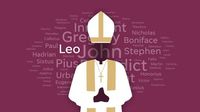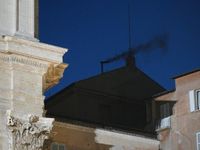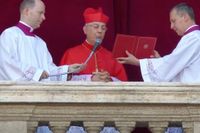In a historic moment for the Catholic Church, Cardinal Robert Prevost, 69, has been elected as the first American pope, taking the name Pope Leo XIV. The announcement was made on Thursday, May 8, 2025, during a ceremony in St. Peter's Square, where the new pontiff addressed the crowd, saying, "Peace be with all you." This papal name, laden with historical significance, offers an early insight into the direction he may take the Church.
The choice of a papal name is steeped in tradition, dating back to the early Middle Ages. It serves as a powerful signal of a pope's intentions and priorities. According to Dennis Doyle, a theologian and professor emeritus at the University of Dayton, the name chosen by a new pope can indicate the spirit and vision he wishes to convey. In this case, the name Leo has been used by 13 previous popes, the last being Pope Leo XIII, who led the Church from 1878 to 1903.
Historically, names like John, Benedict, and Gregory have been among the most frequently chosen by popes, reflecting their desire to connect with previous pontiffs and their legacies. John has been the most popular name, selected 23 times, followed by Benedict and Gregory, each chosen 16 times. The significance of these names often encompasses both biblical references and the virtues associated with these figures.
The election of Cardinal Prevost has come as a surprise to many, with commentators noting that his choice of the name Leo could signify a strong leadership style during a time of crisis. Catholic priest and blogger Ed Tomlinson remarked, "It seems likely to be a continuation of Francis’s liberalization," suggesting that Pope Leo XIV may carry forward some of the progressive values established by his predecessor, Pope Francis.
The name Leo is particularly noteworthy due to its historical associations. Pope Leo the Great, who led the Church from 440 to 461, is remembered for his strong leadership during tumultuous times, while Pope Leo XIII was known for his emphasis on diplomacy and human rights. This lineage may suggest that Pope Leo XIV intends to uphold similar values in his papacy.
While the tradition of choosing a new name became more ingrained around the 11th century, not all popes have opted to change their names. Of the 266 popes in history, 129 have adopted new names upon their election. The practice allows for a reflection of the pope's aspirations, with many choosing names that align with their vision for the Church.
Interestingly, certain names have never been selected by a pope, including Joseph, James, and Andrew. The name Peter, in particular, is traditionally avoided out of respect for St. Peter, the first pope. This unwritten rule underscores the significance of the chosen name and the weight it carries in the context of papal history.
As the new pope, Leo XIV's name will likely be scrutinized for its implications regarding the future of the Catholic Church. The name is expected to be a focal point for historians and theologians alike, as they analyze its connotations and the direction it may set for the Church under his leadership.
The announcement of Pope Leo XIV marks a pivotal moment in the Church's history, as it not only highlights the election of the first American pope but also sets the stage for potential shifts in the Church's approach to contemporary issues. As the world watches closely, the implications of his papal name will unfold in the coming months and years.
In his first public address, Pope Leo XIV emphasized the importance of peace and unity, themes that resonate deeply within the context of today's global challenges. His commitment to these values may reflect a desire to foster interfaith dialogue and collaboration, echoing the sentiments expressed by previous popes who have sought to bridge divides.
As the Catholic Church embarks on this new chapter with Pope Leo XIV, the significance of his name will undoubtedly play a crucial role in shaping the narrative of his papacy. The historical context of the name Leo, combined with the unique circumstances surrounding his election, presents a compelling backdrop for the future of the Church.
In conclusion, the selection of Pope Leo XIV as the new leader of the Catholic Church not only breaks new ground with the first American pope but also carries the weight of historical significance through his chosen name. As the Church navigates the complexities of modern society, the legacy of past popes named Leo may guide the new pontiff's approach to leadership and reform.



